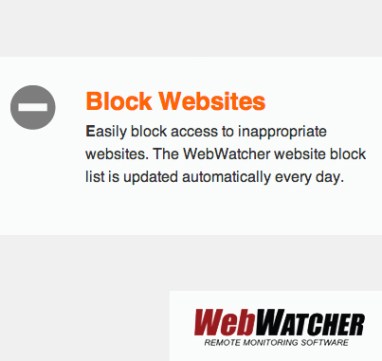Overview: Teens who regularly use online platforms should be careful about what they post. Many types of online activity can work against them when they’re ready to apply to colleges or get that first full-time job. Parents can help their teens understand that most online activity is permanent, even if they delete every questionable post on their platforms. There are steps teens can take to clean up their social media presence, but it’s nearly impossible to erase all traces.
Why Might Your Teen Need to Clean Up Their Social Reputation?
Teenagers aren’t exactly known for making the greatest decisions. It’s not entirely their fault; their brains are still developing, and they don’t always have the necessary life experience to accurately weigh factors and make good decisions.
Over the years, certain less-than-stellar decisions have become sort of accepted teen rites of passage, like senior pranks, skipping school, or getting into petty fights with friends and significant others. Other behaviors, like driving too fast or experimenting with drugs and alcohol, are considered risky but still fairly common for teens.
But today’s teens may have to live with their unfortunate decisions for much longer than teens in previous times. Take a look at what you need to know about your teen’s social reputation and how – or whether – it can be cleaned up.

What Is a Social Reputation, Anyway?
At one time, teens had a relatively small footprint, socially speaking. In fact, many teens were delighted to find that whatever their reputation in high school, they could often go to college or enter the working world and start over, rebuilding their image into whatever they wanted it to be.
As long as they didn’t make national headlines, what people thought of teens in high school or in their hometown didn’t prevent them from reaching their education or career goals.
This can still be true for some teens today, but it’s becoming rarer, and social media is a large part of the reason. Today’s teens don’t have to do something extraordinary or unusual to become well known; something as common as an offensive Instagram post or activity on their Facebook page can go viral and decimate a teen’s chances for acceptance at the college of their choice or a shot at that dream job.
And virality isn’t even the only online concern for today’s teens. Hiring managers and college admissions officers routinely check social media pages for insights into their applicants, so even if few people notice something your teen posts, one wrong person noticing could sink their chances of attaining the future they want. This is your teen’s social reputation today – what other people can glean from looking up your teen online.
These are just a few examples of potentially problematic posts. Most colleges and employers won’t care if your teen posts inoffensive but silly memes or posts about seemingly inconsequential matters, so don’t worry too much about those. Instead, keep an eye out for things that might make an organization feel liable or embarrassed to be affiliated with.
What Can Hurt a Teen’s Social Reputation?
Examples of online activity that can be detrimental to your teen’s social reputation include:
- Oversharing: Revealing too much about themselves, their family, their friends, or their circumstances can spotlight thoughts, beliefs, and behaviors that can harm them later.
- Embarrassing pictures and videos: What’s embarrassing to a teen at the moment and what has a long-term social consequence can be different things. A picture of your teen wearing a silly hat or a goofy grin is probably fine. A video of them making fun of — or cursing out — a fellow student probably isn’t.
- Any racism, bigotry, or hatred: Racism, xenophobia, anti-LGBT sentiment, and other forms of hatred for others reflect not just on your teen, but on any people or institutions they’re publicly affiliated with. Expect jobs and schools to choose not to align themselves with your teen if they post this kind of content or are tagged in it.
- Reckless behavior: Online photos of your teen drinking or doing drugs or videos of them driving dangerously will reflect badly on them. Hiring managers and admissions officers may not be willing to let such behavior slide just because it’s in the past.
- Constant complaints: Teens sometimes seem to complain a lot — about teachers, friends, romantic partners, parents, or siblings. It happens. But when an admissions officer or hiring manager sees a series of these comments online, they see a bad attitude. They imagine an employee or student who will constantly and publicly complain about their organization or institution and its employees. It’s not hard to understand why they might pass.
These are just a few examples of potentially problematic posts. Most colleges and employers won’t care if your teen posts inoffensive but silly memes or posts about seemingly inconsequential matters, so don’t worry too much about those. Instead, keep an eye out for things that might make an organization feel liable or embarrassed to be affiliated with.
Can a Tarnished Social Reputation Be Fixed?
The answer to that question is complicated. If your teen’s less-savory social media posts have relatively few views and shares, just deleting them might solve the problem.
But it’s important to remember that once something hits the internet, it can be impossible to get rid of it completely. Screenshots exist. People can download pictures and videos to their own devices and share them as their own content. Even if you can untag yourself, you might not be able to get them taken down.
Anything that’s gone viral is akin to letting the genie out of the bottle – you’ll never be able to get rid of it completely, and your teen’s name might show up associated with that item in a simple Google search. What’s more, anyone might search out older, non-viral posts and share that content at will.

What Steps Can Teens Take to Clean Their Social Media?
Your teen can start by getting rid of reputation-tarnishing posts, untagging themselves, and asking others to take down embarrassing pictures and videos that contain them.
However, if you find objectionable content that’s been viewed and shared too many times to be completely removed, you’ll need to prepare your teen for the possibility that they’ll have to address it in some way. This may mean publicly disassociating themselves from it and showing how they’ve changed and moved on or by discussing it privately with admissions officers and hiring managers.
It’s not necessarily true that your teen won’t be given a second chance if they ask for it, but they’ll have to acknowledge their mistakes and show a willingness to change problematic behaviors.
Going forward, the best thing your teen can do is to keep their social media record clean. Encourage them to write in a diary or journal instead or talk face-to-face about sensitive subjects. Teach them to ask themselves if they would want a particular person – say, their grandmother or their personal hero – to see what they’re about to post. If the answer is no, don’t post it!
Remind your teen that there is no “safe” window to post things that won’t get them in trouble. It’s legal for university students to be disciplined for social media posts, and of course, people get fired for things they post online all the time. Your teen needs to develop a habit of being vigilant and keep it up.
Staying abreast of what your teen is doing and posting online can help you keep their social reputation clean in real time, and parental monitoring software like WebWatcher can help. To learn more about WebWatcher, get our free trial.





